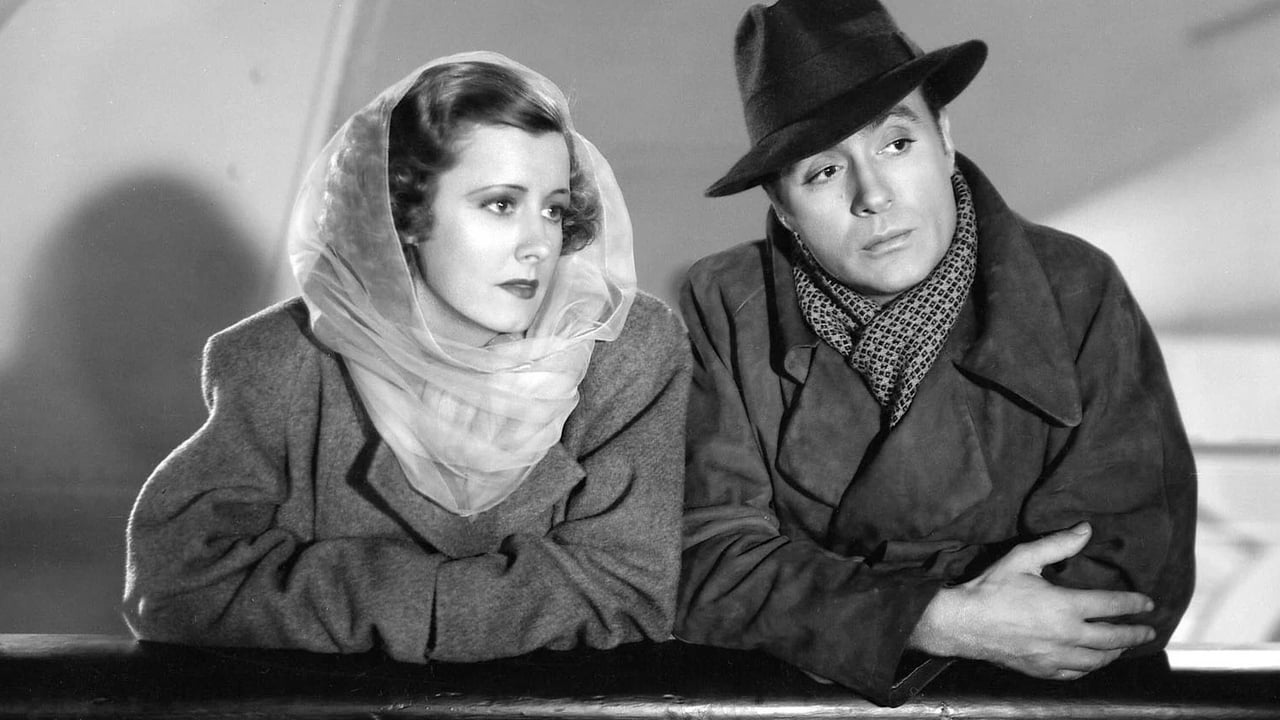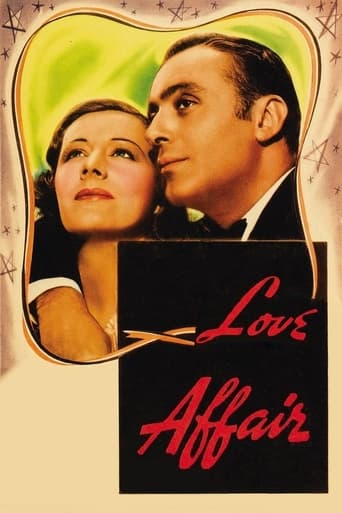

SERIOUSLY. This is what the crap Hollywood still puts out?
... View MoreThe joyful confection is coated in a sparkly gloss, bright enough to gleam from the darkest, most cynical corners.
... View MoreThis movie tries so hard to be funny, yet it falls flat every time. Just another example of recycled ideas repackaged with women in an attempt to appeal to a certain audience.
... View MoreAmazing worth wacthing. So good. Biased but well made with many good points.
... View MoreMy observations: Scotty Beckett and Maria Ouspenskaya both in this movie. I had seen them in "Kings Row", again with Ouspenskaya as the grandmother but with Scotty as the grandson. I like them in both movies.I like Irene Dunne in "Show Boat" and "Love Affair". She was lovely, and wonderful singer.Charles Boyer; what can I say? He always appeared so cultured and debonair.Ouspenskaya was the first teacher of Stanislavki in this country. She taught Lee Strasberg. Her teacher was Konstantin Stanislavski himself.
... View MoreIt says something for the strength of a story when it can be made twice and still be just as good second time round. Remakes are usually odious things, second-rate bastardisations of a sacred classic that should never have got the green light. However when director Leo McCarey remade Love Affair in 1957 as An Affair to Remember it worked just as well as the original. The later picture has become better known, but Love Affair is still a wonderful thing in its own right.Arguably the biggest difference between the two versions is the cast. Love Affair sees Irene Dunne in what is perhaps the finest performance of her career, showing off all the varied strands of her talent. Dunne was one of the first stars who could combine a fantastic singing voice with real acting ability. When she sings she puts feeling into every note and gesture, making the songs blend seamlessly into her character's emotional development. And she could do comedy as well as the boys, often developing a ballsy rapport with her leading men as she does here with Charles Boyer. Boyer is not quite as breezily likable as Cary Grant would be in 1957 (and ironically, Grant could just as easily have played this role in 1939), but he is a strong dramatic performer and certainly fits the bill. Maria Ouspenskaya is very good too. Her role is negligible in terms of screen time but it has a bearing on the whole plot, and despite her frailty and quietness Ouspenskaya has the necessary presence to deliver a suitably memorable performance.The cast may vary, but the director is the same for both versions, and when McCarey came to do the remake he followed the original almost shot-for-shot. The implication is that his earlier work was already good enough, which it certainly is. McCarey calls upon his silent comedy background as usual, making use of long takes, subtle manoeuvres and compositions in depth. Sometimes this is as comical as it is meaningful – Dunne and Boyer sitting side-by-side at their separate tables for one is like a sight gag. Other times it is dramatically poignant. The couple's heartfelt talk on the last night of the cruise is shot in one very long take, but rather than making it completely static, the director shows us the gentle rocking of the ship as a tender counterpoint. That's typical McCarey, finding ways of keeping things moving without looking artificial or going against the mood of the scene.But perhaps the biggest secret to the dual success of the two versions is that wonderful screenplay. We have an original story by McCarey and Mildred Cram, fashioned into a screenplay by Delmer Daves and Donald Ogden Stewart. McCarey always had a nose for a heartrending love story and Stewart pretty much defined the romantic drama of the 30s and 40s. The romance develops naturally – it's not one of those misogynistic quasi-abductions you often see in movies of this period. The fateful twist is perhaps a little trite and melodramatic, but everything that comes before has been set up with such an easygoing realism that the bolt-from-the-blue is acceptable. The final resolution is just what we would expect, but it is done with a delicate simplicity that makes its impact very real. An Affair to Remember may be the better known picture, but both versions seem to fit into their own era with really very little difference between them. The reason of course is that Love Affair has that uncomplicated timelessness, which still makes it a moving experience today.
... View MoreWhile it is true that Irene Dunne and Charles Boyer lit up the screen with their chemistry in this 1939 film, the remake with Cary Grant and Deborah Kerr in 1956's "An Affair to Remember," was even better.Talk about repeating one's role, Maria Ouspenskaya was nominated for her second best supporting actress Oscar as a grandmother giving great advice to Dunne. 3 years before, Ouspenskaya received a first nomination for a very similar part in "Dodsworth."Love was better than ever in this film. Boyer is the playboy who is forced to come to terms with doing something productive so that he can win the love of Dunne.Only in Hollywood could tragedy be brought together and happiness ultimately found.
... View MoreAn American woman and a French playboy fall in love on a ship and plan to meet in six months at the Empire State Building. McCarey remade the film in 1957, a version that is much more popular, but the original is as good if not better. Dunne is fabulous as the woman, bringing more warmth and a different sensibility to the role than Deborah Kerr did in the remake. Being French and being 40 years old at the time, Boyer is better suited to the role of the playboy than a 54-year old Cary Grant in the later film. Ironically, McCarey's film previous to this, "The Awful Truth," starred Dunne and Grant. Sadly, no good prints of this film have survived, making it difficult to fully appreciate its charms.
... View More